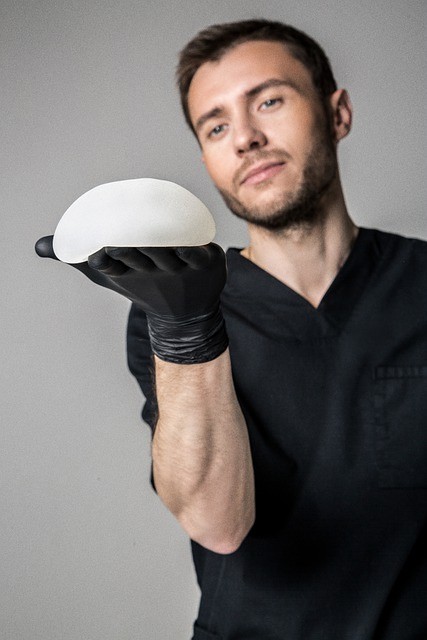
These days, many people regard cosmetic surgeons as "half artists" to the delight of the doctors themselves. Cosmetic surgery transforms the body in many cases, not to cure a disease but to look younger and more beautiful. Though based in medical science, it is clear that cosmetic surgeons must rely on some aspect of their intuition in order to achieve the desired outcome.
The editor of Plastic and Reconstructive Surgery (PRS) recently published an article that compared Michelangelo and Leonardo da Vinci who are both artists. It looked at creativity as opposed to acquiring knowledge in the medical field. The article posed thought-provoking questions pertaining to the practice of plastic surgery as a learned knowledge or innate skill. There was no definitive conclusion.
Science has been known to be a place where artists have found their artistic expression. There is a common denominator between science and art, and they run parallel to each other. Generally, art and science are opposed to each other, but they are inextricably woven together, so it's hard to tell the difference. This is why cosmetic surgery may be seen as both scientific intervention and artistic performance.
We spoke to a Calgary Plastic Surgery Centre, who helped to clarify the argument by narrowing the focus on medical science in particular, and not science as a whole. We can look at the first phase in the process, which is the diagnosis for cosmetic surgery.
After doing this we should seek to figure out what standard is used to determine what is abnormal and needs to be "fixed". Is there a definite diagnosis on what is young and beautiful? Can we establish ideal proportions? We can use statistical records as a reference point but there is no absolute standard for the way someone would like to look.
Aesthetics may provide the diagnosis of beauty, but it is nothing but a conceptual analysis. Beauty judgments cannot be assigned based on solid concepts, but are produced through intuition so that objectivity and totality cannot be deliberated.
Cosmetic surgeons are not painters or sculptors who design artistic pieces with objectivity and totality. They are merely repair-workers who service mass-produced products in the way the clients desire them to be. When a cosmetic surgeon receives a client, they are viewed as "fixing a problem".
Hence, it is important for the cosmetic surgeon to know the components of the materials of the human body, have a complete understanding of the parts to be restored, sharpen the repair techniques, and acquire their abilities by continual practice.
Cosmetic surgeons should move away from notions that derive from a single-minded quest for financial gain and worldly recognition. If they do this, they could potentially repair the professional part of the service by handling the human body as a dwelling place for the soul.
There exists an intriguing connection between cosmetic surgeons as providers for their family and their clients who want to make themselves look more attractive and younger at the least cost. Their art may inspire many people, but science attempts to support a life of stability for their families.
Many doctors may capitalize on the fact that patients have fantasies for their health and appearance, and they benefit from selling their skills at a high price. However, when they do this, they create a situation in which they are required to explain the results of procedures in scientific terms to their patients.
Patients often notice this conundrum and are disillusioned by the entire process. Many of the patients desire to have concurrently scientifically reliable results as well as artistic perfection.
It has been said that in art, nothing can be achieved without the presence of a genius, but in science, even the mediocre can have excellent achievements. To be a good cosmetic surgeon, you have to a genius with magnificent intuition and creativity when artistic quality is appreciated.
On the other hand, it is persistently ordinary procedures founded on analytic logic and stripped of its vagueness when the focus is on its empiricism and scientific aspects.
Both cosmetic surgeons and their clients have clear double standards concerning cosmetic surgery which fundamentally stem from the inherent duality in the nature of cosmetic surgery.
The artistic side of cosmetic surgery carries with it a greater monetary advantage to those who have the gift of creativity, while its scientific side allows even the ordinary surgeon to perform the procedures, which unavoidably reduces comparable prices for these ventures.
Cosmetic surgery is a sensitive profession. It requires subtly altering several areas of the body to produce beautiful, natural-looking outcomes. Cosmetic Surgeons must have an artistic eye and creative approach and scientific knowledge to satisfy each patient's individual needs. To be the best cosmetic surgeon demands more than just scientific and medical skills. Cosmetic surgery is both an art and a science.
© 2025 ScienceTimes.com All rights reserved. Do not reproduce without permission. The window to the world of Science Times.












